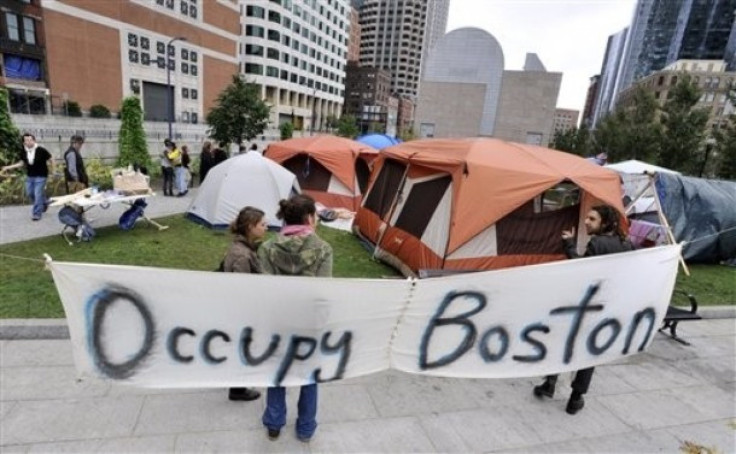Occupy Boston Gains Momentum, Inspired by Occupy Wall Street Protest

After so much fervor in New York, the Occupy Wall Street protests have begun to gain ground in Boston.
Protests by the group, called Occupy Boston, have been building since Friday, when about 1,000 people protested in downtown Boston's Dewey Square. Police arrested 24 people on trespassing charges when they refused to leave the Bank of America building nearby.
The name Occupy Boston is inspired by Occupy Wall Street, which is entering its third week in Manhattan's Financial District. On Saturday, 700 people were arrested on charges of blocking the Brooklyn Bridge. The effort has spread to other areas besides Boston and New York, including Philadelphia and Los Angeles.
According to Boston.com, about 100 people marched through downtown Boston on Monday as part of the protest. Protesters first gathered in the city's Financial District and then marched to the State House where they stood on the steps, chanting slogans and holding signs. Boston police officers also stopped traffic at key intersections.
Some of the signs included capitalism is organized crime and Where's my golden parachute?
The demonstrators are a loosely organized group drawn together by e-mails, phone calls and a personal fear that the country is heading in the wrong direction. They have no specific demands yet, but they are holding daily general meetings, often broadcast on the Internet, to discuss problems and possible solutions.
The demonstrations in both Boston and New York are aimed at calling attention to numerous issues, including rising costs for education, housing, and health care, high unemployment and the bank bailouts of 2008.
© Copyright IBTimes 2024. All rights reserved.











